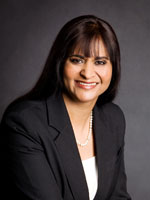First time job seekers: be prepared to meet opportunity
The final examinations for Matrics and tertiary students alike are in full swing, and while many learners are focusing on studying, writing and passing, the impending question of what to do next is still a concern for many.
Taking practical steps towards the future you always dreamed of can be daunting, but one thing is certain - you will need a job to get you there. It is said that success happens when preparation meets opportunity, so prepare your CV and cover letter and go on the hunt for the opportunities that will help you get your foot in the door to your dream job.
Here are some tips to writing a winning cover letter and CV:
- Keep it simple: When typing up your cover letter and CV, use a legible black font on a plain white page. Avoid swirly artistic fonts, pictures, and themed backgrounds, as these can be difficult to read.
- Uncover yourself: Your cover letter, which is usually an email, allows you to introduce yourself to prospective employers and explains why you are submitting your CV to them. This is your opportunity to sell yourself by providing information about your skills and potential contribution to the company. You should state why you are interested in the job, as well as why this person should meet you. End the letter by saying: "I hope to hear from you soon" or: "I look forward to your response," expressing a subtle interest for further dialogue.
- Divide and conquer: Divide your CV into sections, such as personal details, work experience, education, skills and references, and include relevant information in each. List your qualifications, institutions where you studied, subjects and year of completion in chronological order under the education component. Be sure to include any additional courses that you may have done as well as the computer programmes you are familiar with in the skills section. You could also include projects and roles in your educational career that have taught you valuable life lessons. First-time job seekers should include some of the services for which you have been paid or rewarded to do, such as babysitting, dog walking, house sitting and gardening. Candidates often forget to list vacation employment - this is very important as it shows that you have applied yourself to the world of work and gained valuable experience.
- The refs: Prospective employers will need to contact people with or for whom you have worked to verify the information on your CV and get insight into your work ethic, behaviour, and performance, so include the names, contact numbers, and email addresses of at least two references to back you up.
- Check, check and check again: Your completed CV should be between two and four pages long and you must check this for spelling and grammatical errors. If possible, ask someone that you trust to read it and help you identify possible errors.
Once you are completely satisfied with your CV and cover letter you can start applying for jobs. Don't be disheartened if you get a few noes as persistence pays off and you'll eventually be asked to come for an interview.
Getting nervous for a job interview, especially your first one, is only natural, but I suggest that you follow these dos and don'ts to help you make a great impression:
- Preparation is the key: Do your research by reading the company's website so that you can get a better understanding of its business. Based on this information, draw up some questions to ask your prospective employers as the interview is also an opportunity for you to learn all that you can about the company and to decide whether or not you would like to work there. Speak to friends who have either been interviewers or interviewees and find out what types of questions are typically asked. Think about how you would answer these so as not to be caught off guard when these are raised in your interview.
- Dress for success: Many businesses do have a casual dress code, but when going for an interview, you should still dress in your best and the general rule is to keep it conservative. This will show that you take your career seriously and that you are professional, respectful and polite.
- The small things count: Don't go to bed late the night before the interview as you'll need a good night's sleep to be alert the next day. "Better late than never" or "fashionably late" do not apply for interviews, so make sure you plan your route and the time required carefully. Rather arrive earlier than you need to. During your interview, and even while you are in the waiting room, don't fidget or slouch in your chair. By sitting up straight and keeping your hands on your lap or resting on the table in front of you, you will appear confident and attentive. And remember to be polite and smile.
Landing the right job will launch you into the future you have always wanted and armed with the right tools, the task will be less overwhelming for first-time job seekers.
About Kay Vittee
Kay Vittee is the CEO of Quest Staffing Solutions.































